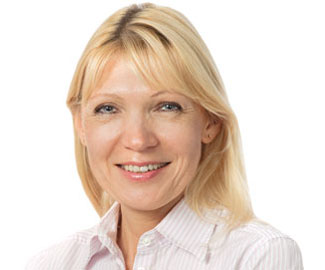 Cataract Surgery Overland Park, KS
Cataract Surgery Overland Park, KS
Dr. Cavanaugh has the training, experience, and unsurpassed technology to provide you with optimal cataract and lens implant surgery results in Overland Park, KS
Cataracts are very common as you get older; however, you don’t have to live with the cloudy impact they can have on your vision — there are solutions that can help you to see clearly, often without the help of glasses or contacts! At Cavanaugh Eye Center, our laser-assisted cataract surgery solutions and proven, advanced lens implants have made a positive impact on the lives of people just like you in Overland Park, KS, through the priceless gift of clear, natural vision.
We offer bladeless laser-assisted cataract surgery utilizing Alcon’s LenSx® Laser suite, including the VERION Image Guided System. This laser suite is the only one of its kind in Kansas and the KC Metro area. Our goals for investing in cataract laser technology are to optimize your outcomes AND to enhance your results.
Ready to see the difference? Let us help you gain clear vision through cataract and lens implant surgery. We welcome you to the Cavanaugh Eye Center family and look forward to seeing you for your complete cataract consultation at our office in Overland Park.
Schedule a Consultation Today!
Cataracts – The Basics
The lens of the eye is located behind the pupil. Its function is to focus light through the pupil and back to the retina so that we can see. In addition, the human lens can accommodate, or change its shape in order to focus at near and distant objects. As one gets older, the human lens stiffens and can no longer focus as well up close. This aging change happens to everyone and is called presbyopia.
When a cataract forms, the natural human lens becomes cloudy, often a yellowish-brown color. It not only blocks light from entering the eye, it also scatters light and causes blur, glare and occassionally double vision. Cataracts typically progress slowly but can be rapid in some cases.
Cataracts Symptoms
- A gradual deterioration in vision over time
- Objects may appear yellow, hazy, blurred or distorted
- Vision at night or in low light conditions may be reduced
- Vision in bright light or in the sun may be difficult due to glare
- Halos may appear around bright lights at night


Common Misconceptions About Cataracts
- Cataracts are a film over the eye – No, a cataract is not a film or growth on the lens; it is the clouding of the lens itself.
- Cataracts spread from one eye to the other – No, cataracts cannot spread from one eye to the other. Many people do get cataracts in both eyes; however, each eye develops cataracts independently.
- Cataracts can be prevented – Unfortunately no, not with our current medical knowledge. Everyone is predisposed to develop cataracts as they age, there is nothing you can do to prevent their development. There are additional causes of cataracts (such as eye injury, steroid use or exposure to ultraviolet light) that you might be able to control, but no preventive measures will guarantee cataract-free eyes.
- Cataracts can be cured with medication – No, the only treatment for cataracts is to surgically remove the clouded lens and replace it with a clear artificial intraocular lens implant (IOL).
- Cataracts cause irreversible blindness – Not at all, cataract surgery is a very successful procedure and can help you regain clear vision in no time!
Consultation with Our Cataract Surgeon
At your cataract consultation in Overland Park, our staff of highly trained technicians will perform diagnostic tests and will dilate your eyes. You will then meet with Dr. Cavanaugh to determine your surgical vision needs.
We provide you with all of the information you need to fully understand your cataract surgery options. At the end of your surgical counseling session, you will be asked to make two very important decisions:
- Do you want your cataract surgery done by the traditional, manual blade incision method or by the newer blade-free LenSx Laser-Assisted Cataract Surgery method?
- How much freedom from glasses or contacts do you desire? This answer will help us direct proper lens implant selection to help you achieve these goals.
Cataract Surgery in Overland Park, KS
According to U.S. News, more than 3 million cataract surgeries are performed each year in the U.S., making it the most common elective surgery. At Cavanaugh Eye Center, our cataract surgery is performed in an outpatient ambulatory surgery center dedicated to ophthalmic surgery with state-of-the-art equipment and well-trained nurses. In most cases, your surgery can be done with topical anesthetic using a numbing gel. For certain patients and more difficult cases, a local block can be done that provides a deeper level of anesthesia. Both are safe and eliminate the risk associated with general anesthesia.
- After applying the local anesthetic, a very small incision is made manually or with a laser at the junction of the white and colored parts of the eye. This incision is so small it seals without sutures in 99% of cases. Additionally, you do not need to stop blood thinners for cataract surgery because the small incision is done through the clear cornea where there are no blood vessels.
- A sophisticated ultrasound vacuum (phacoemulsification) is used to remove the clouded cataract from within its outer clear membrane sac, called the capsule.
- An intraocular lens implant (IOL) is inserted into the empty capsule providing a clear focusing pathway for light. This implant is individually calculated to be as accurate as possible to your eye’s prescription.
Nearsightedness, farsightedness, astigmatism, and presbyopia can be corrected at the same time the cataract is removed, which can significantly reduce or sometimes eliminate the need for distance glasses.
Cavanaugh Eye Center offers co-management with your existing eye doctor. You may have been referred by your optometrist for surgical care at our practice and ambulatory surgery center. Dr. Cavanaugh can perform your cataract surgery in Overland Park, KS, and, if you prefer, your local eye doctor can assume postoperative care through co-management options. Your eye doctor communicates your post-operative results to Dr. Cavanaugh. If there are any concerns, Dr. Cavanaugh may ask to see you personally.
Overland Park Laser-Assisted Cataract Surgery
Alcon’s LenSx® Laser – Cavanaugh Eye Center embraces change and innovation in our commitment to providing patients the finest in eye care. We are proud that Cavanaugh Eye Center offers bladeless cataract surgery in Overland Park, KS, utilizing Alcon’s LenSx® Laser. The LenSx® laser suite provides automation of the most challenging steps during cataract surgery and enables the surgeon to create precise incisions using an image-guided laser. The high-definition imaging technology allows Dr. Cavanaugh to see a detailed image of your eye, real-time, during surgery. This has brought a new level of accuracy to laser refractive cataract surgery providing unparalleled, predictable results.
VERION™ Image Guided System – In addition to LenSx® laser-assisted cataract surgery, your procedure will be tailored to your unique eyes with the VERION™ Image Guided System. This one-of-a-kind, personalized technology links measurements in the office to the operating room. It gives Dr. Cavanaugh a custom blueprint scan of your eyes when planning for your procedure and digital markers during your surgery to ensure optimized placement of your cataract incisions and your lens implant. You can rest assured that Dr. Cavanaugh is using the most advanced cataract surgery technology available today. This revolutionary technology provides Cavanaugh Eye Center patients the option to receive personalized cataract surgery in Overland Park with precise and predictable results.
Manual Versus Bladeless Laser-Assisted Cataract Surgery
There are several different types of incisions made during cataract surgery. Incisions are made to allow Dr. Cavanaugh access to your cataract and to optimize your visual outcome by treating astigmatism. In manual cataract surgery, all incisions are made by hand, utilizing a blade. With LenSx® bladeless laser-assisted cataract surgery, these delicate incisions are made by an automated laser guided by live OCT imaging to provide unmatched precision.
Capsulorhexis is the medical term used to describe the removal of the outer layer of the lens, a necessary step in cataract surgery and the single most important step in your visual outcome. In standard cataract surgery, this step is performed by the surgeon manually creating a surgical opening with a handheld instrument. The LenSx® technology offers Dr. Cavanaugh laser precision to create this opening and allows the lens implant replacing the cataract to have the best possible effective lens position (ELP). The ELP is what largely determines the accuracy of your prescription postoperatively. Perfect diameter and centration of this opening yields the most predictable postoperative visual results.
Cataract surgery requires an ultrasound vacuum (phacoemulsification) to segment and remove your cataract. The goal of your surgeon is to reduce the amount of time and energy needed to remove your cataract to maximize the safety of your procedure. The LenSx® laser provides efficient laser segmentation and creates dissected fragments of your cataract that are easily removed. The laser fragmentation pattern can be customized to your eye depending on the severity and type of cataract that you have. This results in a significant decrease in time and energy needed to remove your cataract which leads to less swelling, inflammation, and faster vision recovery versus the manual, bladed procedure.
Intraocular Lens Options
Recent technological advancements offer us wonderful choices of intraocular lens implants (IOLs), but the variety of options can sometimes be confusing and overwhelming. There is no need to worry, however, as Dr. Cavanaugh will recommend the best lens implant package for you based on exam findings, discussion during the exam, and your patient questionnaire.
There are three different categories of IOLs:
Single-focus lens implants provide excellent distance vision but do not correct astigmatism or presbyopia. All patients choosing this type of lens will need reading glasses for near work. Monofocal lenses are best for patients who do not mind wearing glasses most of the time for distance and reading. Insurance DOES cover the cost of these lens implants.
- Single-Focus Lens Implant with “Blended” Monovision - Using a single-focus (monofocal) lens implant, the dominant eye is focused for distance and the non-dominant eye is biased for near. Patients will need reading glasses for small print or distance glasses for driving. There is no additional charge outside of insurance coverage for this option.
Astigmatism is a condition where the cornea (the front window covering of the eye) is oval rather than round, which results in blurred vision and ghost images around objects. In order for light to focus precisely, the cornea needs to be as round as possible. Toric IOLs have your astigmatism power incorporated into the lens optic and provide the most precise way to reduce or eliminate astigmatism while at the same time correcting cataracts.
Presbyopia describes the condition in which the human lens stiffens over time and causes reading difficulty for patients over 40 years old. Multi-focus lenses are the implants of choice for patients wanting the greatest freedom from glasses. Insurance DOES NOT cover the additional cost of these lens implants.
- Multifocal Lens Implants - Multifocal IOLs have a small bifocal or trifocal built into the lens that allows for clear vision at all distances. Unlike bifocal glasses, you do not have to move your head to see through the different zones or lines of correction. These IOLs provide excellent vision at all distances and the most independence from glasses. The main side effects of these IOLs are temporary halos seen around lights (such as headlights) at night due to a reflection off of the multifocal circles on the IOL. These halos do not prevent you from driving at night and usually dissipate and improve after 90 to 180 days.
- Focusing or “Accommodating” Lens Implants - The Crystalens is a uniquely designed lens implant that provides dynamic focus for “accommodation.” The lens implant mimics the movement of the younger, natural human lens by using the eye’s own focusing muscles to flex the lens. Compared to multifocal lenses, the “accommodating” lenses have less halo side effects and provide excellent focus for distance as well as intermediate or computer distance. Small print at near is more difficult to achieve with this lens type and is variable depending on the strength of your focusing muscles.
Why Choose Cavanaugh Eye Center For Cataract Surgery in Overland Park, KS?
Dr. Cavanaugh received his medical degree and ophthalmic residency training at the University of Kansas where he was Chief Resident. He completed a Surgical Fellowship in advanced corneal and refractive surgery at the prestigious Wilmer Institute of Johns Hopkins Hospital in Baltimore, which is consistently named the number one eye hospital and training program in the nation.
In practice since 1991, Dr. Cavanaugh is a noted innovator in ophthalmology and has extensive experience with laser-assisted and traditional sutureless small incision cataract surgery methods. Helping his patients over age 40 reduce or eliminate the need for reading glasses has been a focus of Dr. Cavanaugh’s research and study. He is highly skilled in the new generation of lens implants and has more experience with premium intraocular lenses than any surgeon in the region which enables him to provide the best consultative care to his patients.
Cataract Surgery Cost
Our Cavanaugh Eye Center team does everything we can to make clear vision accessible to everyone. We work with CareCredit to make vision surgery available through monthly payments, and we work with FSA and HSA plans. We also work with insurance companies when possible.
Like any surgical procedure, you will incur separately billed charges from three places:
- Surgeon’s office
- Surgery center facility
- Anesthesia
Because these are all separate business entities, the patient is responsible for any insurance co-pays, co-insurance, and/or deductibles that may apply for each of these three entities. Our office will pre-certify your insurance benefits only for the surgeon fee associated with the cataract surgery. This pre-certification document, with the estimate of charges, will be given to you at the office or mailed to your home. The amount designated as ‘patient responsibility’ is due five business days prior to surgery.
Keep in mind that this is an estimate of benefits obtained from your insurance carrier and the actual amount owed could vary. The surgery center and anesthesia group will submit their charges to your insurance and a separate bill from each entity will be sent for the portion owed after insurance has paid.
Your health insurance will generally cover cataract removal and a single-focus lens implant only. Any advanced technology elective upgrades to your cataract procedure are 100% the financial responsibility of the patient and will NOT be billed to insurance.
We require 24-hour notice of rescheduled/canceled appointments to avoid a fee.
If you have health insurance coverage:
- Please supply us with a current copy of your insurance card
- Please notify us of any changes in your address or telephone number
- All copays are due at the time of service
- All non-covered services such as refractions (new prescription for glasses) will be due at the time of service
- All referrals are the responsibility of the member/patient and must be current prior to your visit
- Your estimated portion, including any deductibles, co-insurance, or non-covered service will be expected to be paid prior to your surgery date
- Patient balances are due 30 days after the insurance notifies our office of patient responsibility
- Patient will be responsible for any fees associated with enforcement of collection action
If you do not have health insurance coverage:
- Payment in full is required at the time of service
As a courtesy, we will gladly assist you by filing your claim with your insurance carrier. If you receive a statement from our office after insurance has paid or denied, the balance then becomes your responsibility to pay. If you disagree with the balance for any reason please contact our business office at 913-752-9675.
Payment in full is required at the time of service. We accept cash, check, Visa, MasterCard, Discover, and American Express. We do not provide financing in-house for elective IOL upgrades but financing arrangements can be made through CareCredit. CareCredit offers a full range of payment plans so you can find one that works best for you. With the popular ‘Deferred Interest’ plans, there are no interest charges if you pay your balance in full within the specified time period. CareCredit offers 12, 18, or 24-month plan options with low monthly payments available. You apply online and your specific rates will depend on your credit rating. The process is simple and you will have a credit determination quickly. Our surgical counselors can provide you information about Care Credit and help guide you through the process.
Cataract Surgeon in Overland Park
At Cavanaugh Eye Center, we believe patient education is vital to the success of our procedures and the happiness of our patients. We spend a tremendous amount of time, effort, and expense to ensure that our patients are well informed so we hope this document has been helpful to you in preparing for cataract surgery in Overland Park, KS. We look forward to meeting you at your consultation and thank you in advance for trusting your surgical care to us!




